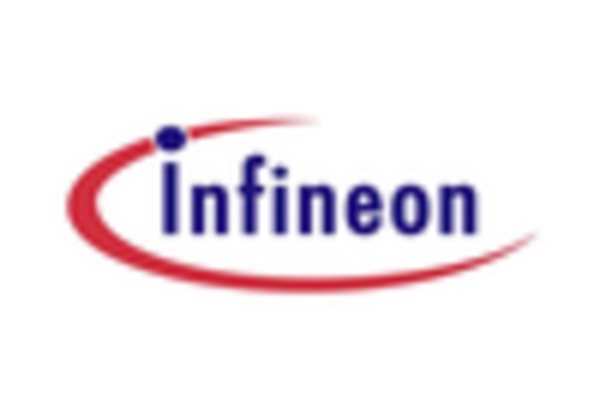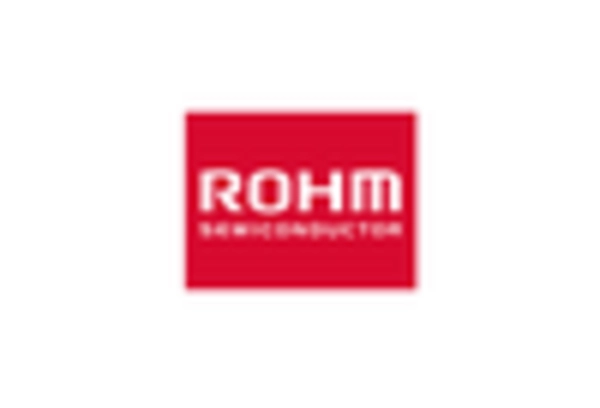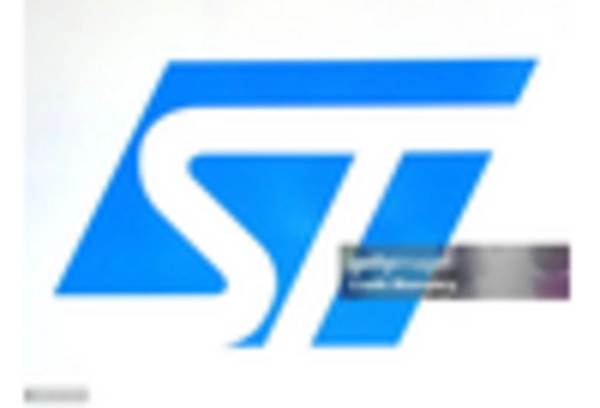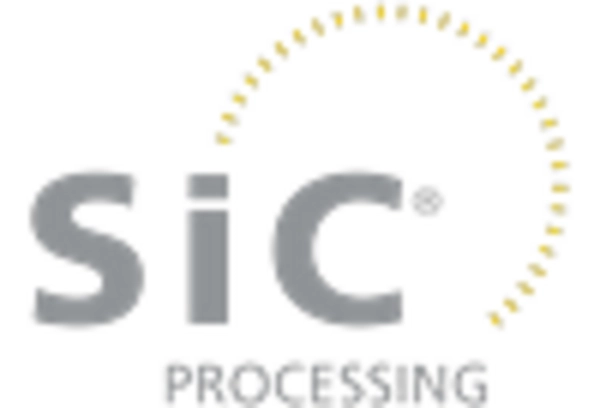The competitive dynamics of the silicon carbide market in South Korea are characterized by a blend of innovation, strategic partnerships, and regional expansion. Key growth drivers include the increasing demand for energy-efficient devices and the rising adoption of electric vehicles (EVs). Major players such as Cree Inc (US), ROHM Co Ltd (Japan), and Infineon Technologies AG (Germany) are actively shaping the landscape. Cree Inc (US) focuses on advancing its semiconductor technology, particularly in the EV sector, while ROHM Co Ltd (Japan) emphasizes its commitment to developing high-performance power devices. Infineon Technologies AG (Germany) is strategically positioned through its investments in R&D, aiming to enhance its product offerings in the automotive and industrial sectors. Collectively, these strategies foster a competitive environment that prioritizes technological advancement and market responsiveness.Key business tactics within this market include localizing manufacturing and optimizing supply chains to enhance efficiency and reduce costs. The competitive structure appears moderately fragmented, with several key players exerting influence over market trends. This fragmentation allows for a diverse range of products and innovations, although it also necessitates that companies remain agile in their operations to maintain market share.
In October Cree Inc (US) announced a significant partnership with a leading South Korean automotive manufacturer to develop next-generation silicon carbide power modules. This collaboration is poised to enhance the performance of EVs, aligning with the growing demand for sustainable transportation solutions. The strategic importance of this partnership lies in its potential to accelerate the adoption of silicon carbide technology in the automotive sector, thereby solidifying Cree's position as a leader in this niche market.
In September ROHM Co Ltd (Japan) unveiled a new line of silicon carbide MOSFETs designed for high-efficiency power conversion applications. This launch is particularly relevant as it addresses the increasing need for energy-efficient solutions in various industries, including renewable energy and industrial automation. The introduction of these products underscores ROHM's commitment to innovation and its strategic focus on meeting the evolving demands of the market.
In August Infineon Technologies AG (Germany) expanded its production capacity for silicon carbide wafers in South Korea, reflecting its confidence in the region's growth potential. This expansion is expected to enhance supply chain reliability and meet the rising demand for silicon carbide components in the automotive and industrial sectors. The strategic significance of this move lies in Infineon's ability to strengthen its market position while ensuring timely delivery of high-quality products to its customers.
As of November current trends in the silicon carbide market are increasingly defined by digitalization, sustainability, and the integration of artificial intelligence (AI) in manufacturing processes. Strategic alliances among key players are shaping the competitive landscape, fostering innovation and collaboration. Looking ahead, competitive differentiation is likely to evolve from traditional price-based competition to a focus on technological innovation, supply chain reliability, and sustainability initiatives. This shift indicates a growing recognition of the importance of not only product performance but also the broader impact of manufacturing practices on the environment.















